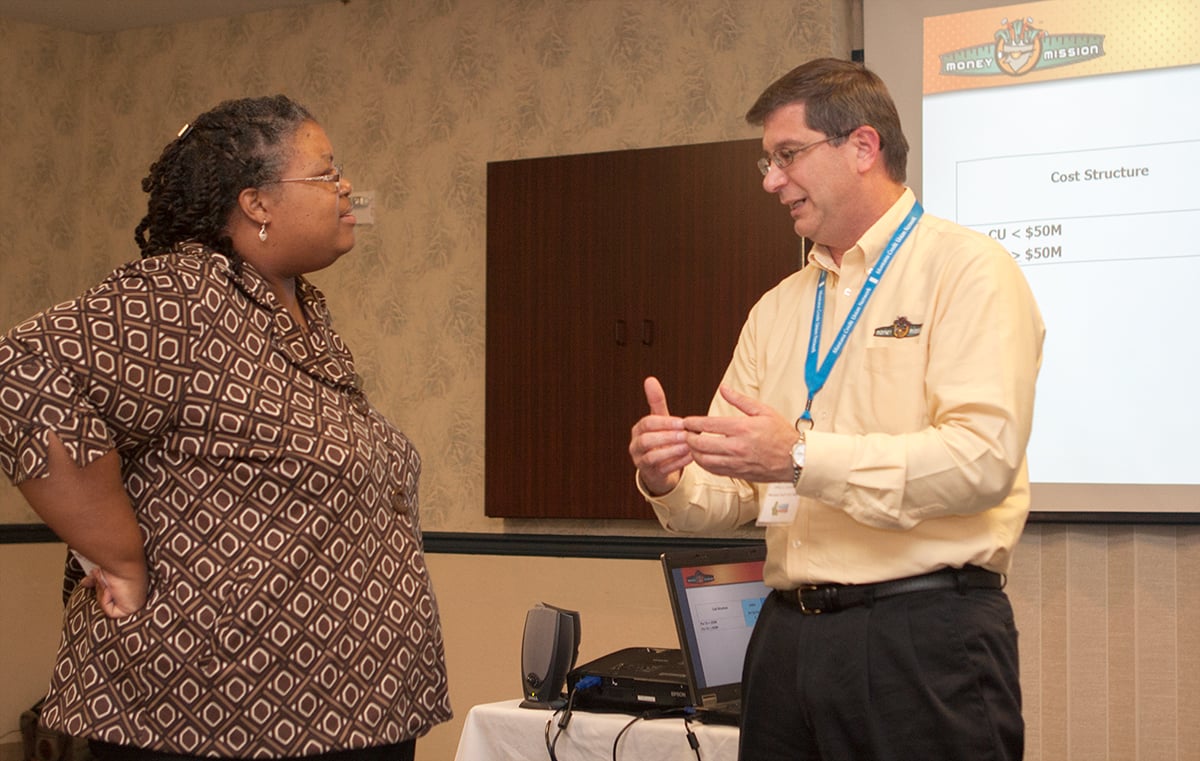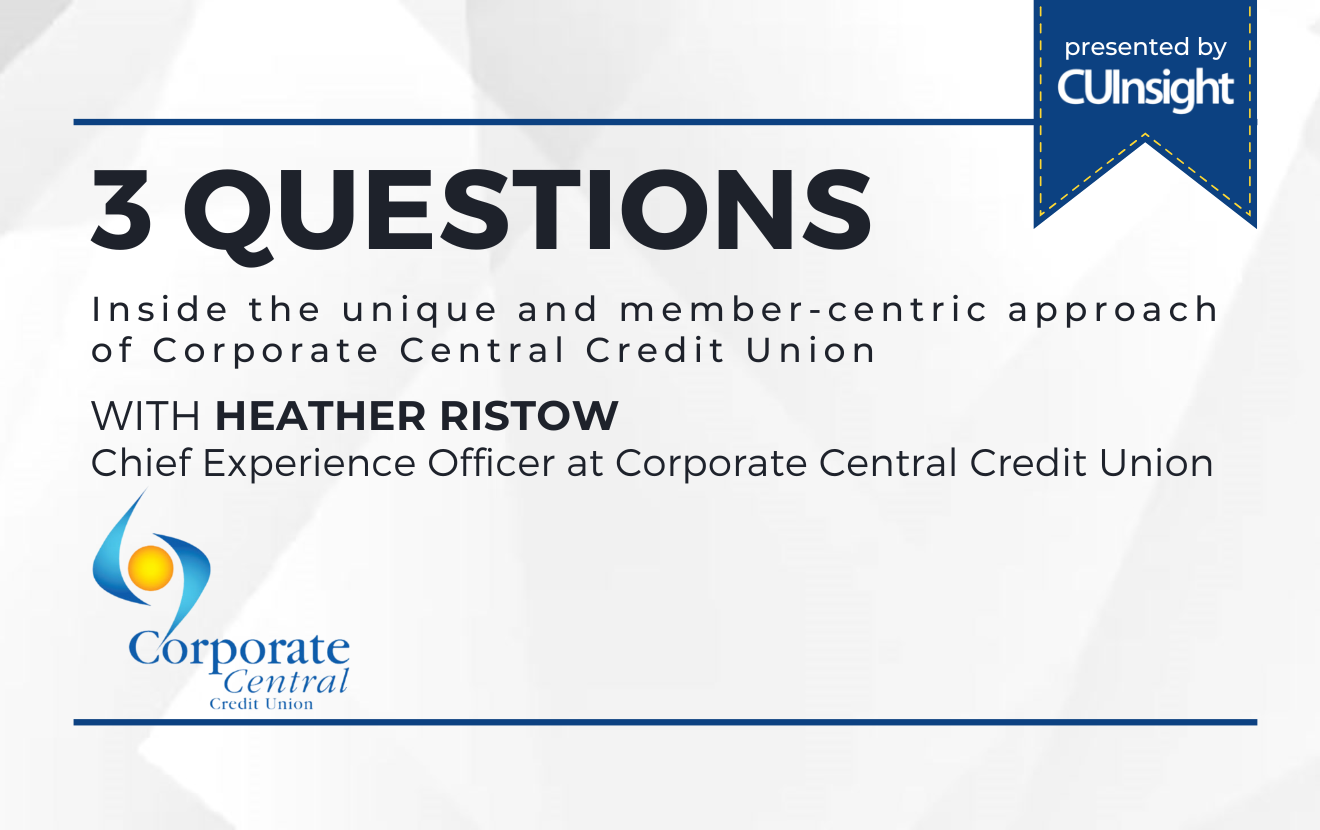by Alana Listoe, MCUN
In a world of gadgets, gizmos and endless ways to play electronic games, credit unions are looking for ways to better engage teenagers. In 2010, a partnership between the Credit Union National Association and the Wisconsin Credit Union League launched Money Mission, a successful program that uses the digital world to teach high school students about personal finances and, more importantly, how to strike a balance between financial matters and living an enjoyable life.
Now, Montana credit unions want to bring this interactive game to high school students in our state. Ben Schweder, vice president of Wisconsin Credit Union League Services, recently demo-ed the gaming platform to a full house of credit union professionals at the Montana Credit Union Network Fall Forum in Helena.
Schweder said Money Mission’s interface provides teens between the ages of 15 and 19 education on money without lifelong punishments like unmanageable amounts of student loan, credit card, or boats and toys debt.
The game allows participants to live in a community where they earn money, pay bills, decide on investments, and make purchases. The key is striking a balance between financial matters and living an enjoyable life. A player’s “happiness” is scored based on how well it’s balanced. The nugget of the program is opportunity for scholarships.
“It’s a dramatic tool that teaches real life skills like buying a car or stocks and managing a savings account after they’ve developed their own avatar,” Schweder said.
“Money Misson showcases the power of cooperation: students learn and can apply for scholarships, schools receive free teaching resources, and credit unions build brand awareness,” says Tabitha Garvin, who is in charge of business development at the MCUN. “We hope that Montana credit unions will be using this great financial literacy tool in their communities in the future.”
Montana’s Education Community Sees Value
Kelly Cresswell, vice president of foundation activities for the Student Assistance Foundation, also attended Schweder’s presentation. She was so impressed with the program, she convinced her organization, a nonprofit headquartered in Helena, Mont. that works to help students navigate the financial world while pursuing higher education, to apply for a grant that would bring Money Mission to all credit unions in the state to get Montana students participating.
Cresswell said SAF works with a number of different financial literacy programs but none has an emphasis on “happiness.”
“The link between happiness and financial security is pretty solid,” Cresswell said. “And Money Mission backs up what they say with a scholarship program where participants can seek higher education backing up the principals learned in the game.”
SAF should find out if they were a successful applicant after the first of the year.
The Montana Credit Union Network has worked together with SAF on other projects and plans to assist in the implementation to Montana if SAF’s grant proposal is successful.
Karen Smith, executive director of Montana Credit Unions for Community Development the charitable arm of MCUN, said she is hopeful that can happen with successful grant funding.
“We will help facilitate the partnership and use it in any of our programs such as our Matched Education Savings Account program,” Smith said. “The sooner we can build awareness about financial literacy and what credit unions can offer the better.”
Money Mission has a Record of Success
One of the many reasons Montana is so interested is because the success in other places.
It’s been hugely successful at Kaua’i High School in Hawaii with support from Kauai Government Employees Federal Credit Union and Lisa Murphy Allison, who works there as the marketing manager.
“We are always trying to find ways to teach financial literacy and tools to be able to reach younger people,” Allison said.
The number of users broke a Money Mission record because students were so eager to play.
Kaua’i High student Tyler Schields said it’s been a huge hit in his business class.
“We are learning while having fun,” he said. “In this class we have to deal with stocks, essays, and research. It’s really fun to go to a school-approved game site and play.”
Fellow student Kaa Laamea said Money Mission is a great way to help young adults learn what will be happening in their upcoming futures. And classmate Chaun ‘ia Mancia says it puts an emphasis on the importance of going to college.
Allison said she considers herself a big kid. She visits labs filled with students playing to offer assistance. This is not only a school-business partnership, it is a win-win for both parties, she added.
Credit unions serve as an access point to the gaming platform. Teen participants use the credit union’s website to access the Money Mission gaming platform. That exposure can be used to make them more aware of credit unions and engage them in the pursuit of financial literacy.
“Our hope is it will build a deeper relationship with local credit unions,” Schweder said.
Part of the draw for participating credit unions is affordability.
There is an initial set-up fee of $500, which is a one-time cost for every credit union. In addition there is a monthly maintenance fee, based on the size of the credit union. For credit unions over $50 million in assets the cost is $300 per month. For a credit union under $50 million, the cost is $150 per month.
Ralph and Mary Lou LaMacchia of LaMacchia Group, who designs, builds, and brands credit union facilities nationally, partnered with Video Wisconsin and formed Money Mission, LLC.
The Wisconsin Credit Union League assisted in consulting during the development through Video Wisconsin and introduced the program to Wisconsin credit unions initially in May of 2010. Shortly thereafter the Credit Union National Association partnered with the Wisconsin League to make the program available to credit unions nationally.
It’s now offered at 30 credit unions in six states. If the SAF grant proposal is successful, all 57 of Montana’s credit unions will have the opportunity to implement the program, making it potentially available to all Montana teens ages 15-19 in the coming years.
For more information about Money Mission contact Schweder at 800-242-0833 ext. 6026 or bschweder@theleague.coop







